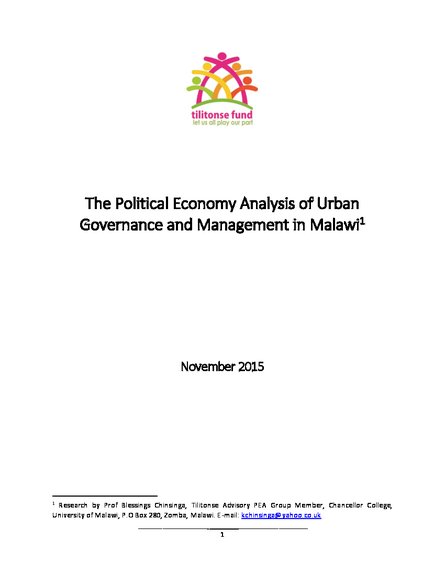
This paper examined urban governance and management in Malawi with respect to two areas: 1) the state of development control, planning and infrastructure development; and 2) the state of community level governance structures in urban areas with particular emphasis on modalities for social organization and capacity for collective action efforts. The analysis was carried out using the World Bank’s Problem Driven Governance and Political Economy Analysis Framework. The framework was preferred because of its ability to shed light on how to shape strategies for operations in ways that range from adjusting them to existing space for change to developing proactive strategies for expanding space for change. This is in line with the underlying objective of any PEA exercise which is to situate development issues or challenges within an understanding of prevailing political and economic processes in society specifically the incentives, relationships, distribution and contestation of power between different groups and individuals.
Resource collections
- UN Habitat - Urban Response Collection
- Urban Response - Urban Crisis Preparedness and Risk Reduction
- Urban Response Collection - Community Engagement and Social Cohesion
- Urban Response Collection - Economic Recovery
- Urban Response Collection - Environment and Climate Change
- Urban Response Collection - Housing, Land and Property
- Urban Response Collection - Urban Crisis Response, Recovery and Reconstruction
- Urban Response Collection - Urban Resilience